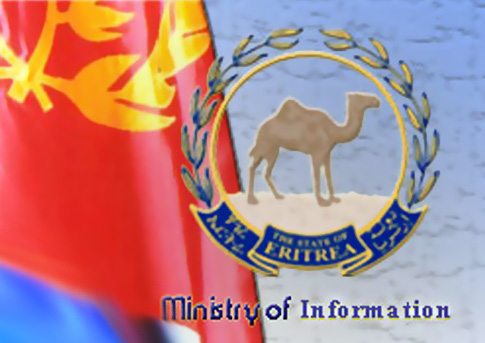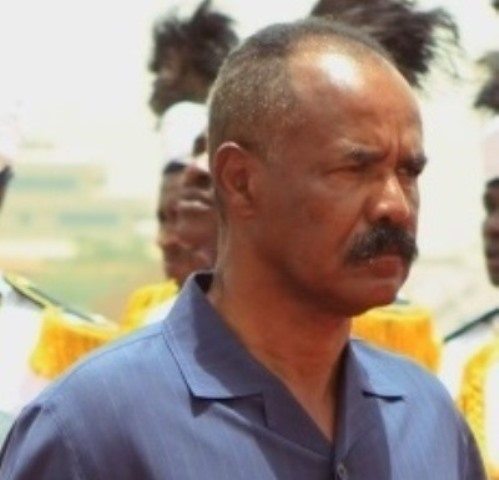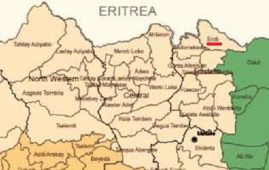Ethiopia’s Prime Minister Meles Zenawi thrilled the Egyptian delegation on Monday. But his proposal sounds much more like a maneuver rather than a concession.
Yesterday, the Egyptian Peoples’ diplomatic delegation visiting Ethiopia got two important ‘concessions’ from Prime Minister Meles Zenawi – at least, that is how the media portrayed it.
Those concessions are: delaying the ratification of the Nile Basin Framework Agreement(CFA) until Egypt elects a government(Oct.-Nov. 2011) and agreeing for a review of Ethiopia’s new dam by a committee of experts.
The first one is simply a good will gesture – since the CFA is not currently tabled for ratification in Ethiopia parliament.
The second one is important as Ethiopia has been rejecting Egyptian request for documents of the studies and technical details of the dam.
In fact, as late as last Saturday, Spokesperson of the House of Peoples’ Representatives, Abadula Gemeda, made it clear to the delegation that his government wouldn’t allow Egyptians nose around its projects as Ethiopia is a sovereign country. He noted that Egypt does not have the right to negotiate in an internal affair of Ethiopia in the absence of institutional framework defining the relationship between the two countries.
However, Meles Zenawi had a surprise on Monday when he met them in his office accompanied by his deputy a number of his advisors. The Premier said, as reported by an Arabic Egyptian media:
“We have decided to suspend the ratification of the CFA until Egyptian people elect a new government and a new president. We have taken this position willingly, in recognition of the Egyptian people. [Ethiopia is in favor of the CFA] however, Egypt is entitled, like the rest of the countries that signed the CFA, to follow the example of Ethiopia or to reject it.
“We are taking this position in recognition of the Egyptian people and the delegation of the Egyptian People’s diplomacy and to strengthen the bonds of love and friendship between Egyptian and Ethiopian.”
The Prime Minister stressed that he had seen several models of dams and that he was keen to choose the model that generates electricity only and does not remember running water in irrigation of agricultural land.
“I say to the Egyptians that this dam is beneficial to Egypt and the Sudan and will not hurts in any way. Yet, in order to reassure the Egyptian people and thereby eliminate all the doubts created by former regime of Egypt, I accept the formation of a committee of experts, consisting Ethiopians, Egyptians, Sudanese and other foreign experts, to examine the dam project and to make sure it will not cause any damage to Egypt and Sudan. Although I am sure of that, I sure you I am ready to modify the project if the Committee concludes to the contrary. “
He added, “this decisions is taken now come out of respect for the Egyptian people and the revolution and the delegation of public diplomacy and to reassure the Egyptian people for whom we have all the respect and appreciation”.
The Egyptian Foreign Minister, Al-Araby, praised Ethiopia’s announcement, in a press statement he issued shortly after in Cairo, saying “this is what we expect from Ethiopia.’
Was it?
There are two noteworthy elements in Ethiopia’s “concessions”.
First, as the quotes above reveal, Meles Zenawi made it clear that Ethiopia made the moves ‘willingly’. The implicit message is that we are not obliged to.
Indeed, when Ethiopia presents the CFA to the parliament for ratification is purely Ethiopia’s decision. But the building of the dam is not – as far as the Egyptians are concerned.
Egypt’s request for the documents of the new dam is not only for the sake of assurance that it doesn’t cause harm to her. Something that Egypt can rest assured from the dam’s location, as there is no much irrigable land in its vicinity.
Moreover, the Egypt State Information Service on Sunday, reported that: ‘earlier this month, a researcher at the Egyptian National Authority for Remote Sensing and Space Sciences (NARSS) accentuated that the dam will not largely affect Egypt’s water share thanks to the 150 billion cubic meters of water held by Lake Nasser in addition to the annual inflow.’ – (though I couldn’t find further info about it)
Egypt;s request, however, is an attempt to assert its ‘legal rights’. According to the 1929 and 1959 treaties, which Ethiopia rejects, that upper riparian countries should get Egypt’s approval before undertaking any project on the Nile waters.
Meles Zenawi’s “concession” falls short of that. He agreed for the formation of ‘a committee of experts Ethiopians, Egyptians, Sudanese and foreigners to discuss the dam project’.
Why form such a multi-national committee, if there is a legal arrangement that obliges Ethiopia to seek Egypt’s approval?
Meles Zenawi is implying that there is no such bilateral arrangement or obligation on Ethiopia, thus an ad hoc committee is needed.
In fact, such a discussion forum is already implied in his offer for Egypt and Sudan to take part in the construction of the dam last month. Again, Ethiopia would anyways did (or will) present the studies of the dam to the multi-national experts council of the Nile Basin Commission, which drafted the CFA.
If there is anything new in Meles Zenawi’s new move, it is that he is not forcing Egypt to sign the CFA – while stressing Ethiopia has no legal obligations to Egypt.
So far, to my surprise, the Egyptians are thrilled.
If Egypt follow through this arrangement, as her Foreign Minister indicated, then it is going to be a major precedent. this would indicate Egypt’s acquiesce that Ethiopia is not bound by the colonial era treaties.
As Egypt is unlikely to make such a concession, I presume, the proposed experts committee is unlikely take off ground.
***************
Update:
Egypt’s Water Resources and Irrigation Minister commended Ethiopia’s new move and has already started making preparations for its implementation.
Ahram reported a few hours ago today:
[Egypt]Ministry of Water Resources and Irrigation Hussein El-Atfy met with ministry senior officials today to discuss the formation of an Egyptian technical committee to study the Ethiopian Millennium Dam Project in accordance with the request of Ethiopian Prime Minister Meles Zenawi.
El-Atfy said the committee would be formulated in coordination with the ministries of foreign affairs and international cooperation and in coordination with Sudanese counterparts.
***************
Check this blog’s Nile archive for more on this issue.
Stay current: subscribe for email notification OR add me on Facebook OR follow me on Twitter.





